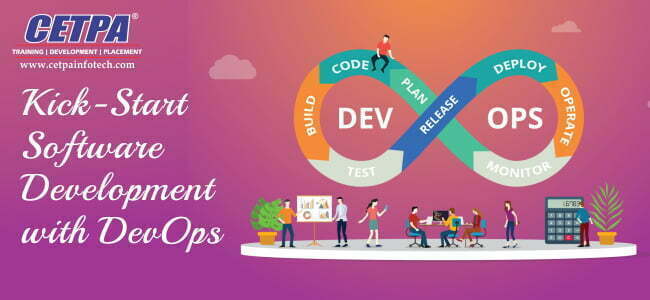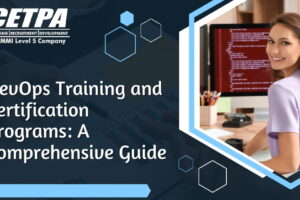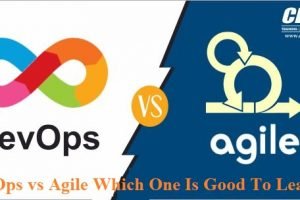Kick-Start Software Development With Devops

What is DevOps?
DevOps is a derivative of agile development that is responsible for the integration of the development team and IT operations. DevOps combines in a manner that there is good communication, engagement, collaboration, and self-regulation between IT operations and software developers and have a single goal of improving the quality of the software and the overall productivity of the team.
If you want to give a kick to your software development career with DevOps then learn all its basics step-by-step. Here are 5 steps that you need to know while starting your career in DevOps-
1. Chance to Learn Different Programming Languages-
DevOps includes programming languages. Without a programming language, you might not able to create any service of cloud computing. Programming language makes sure that you write a great piece of code and it allows portability, optimization, error-free, and scalability. Programming languages required for the DevOps Development are-
1- Java
2- Ruby
3- C
4- Python
5- C#
JavaScript, Perl, and PowerShell are some of the scripting languages require for DevOps Development for Windows. Google developed Go language, a reliable and easy programming language.
For learning DevOps from scratch you can join the best DevOps Online Training where you’ll get the experience of live projects.
2- Understand Essential OS concepts
If you want to increase your productivity then an understanding of essential operating system concepts helps you develop interaction between input and output devices, code faster, and optimizing memory, disk usage, and processing.
There are some important concepts that you need to know before pursuing DevOps training are device drivers, Kernel management, filesystem architecture, memory management, virtualization, resource management, process management, and I/O management.
If you have Operating System knowledge then it is easier for you to develop great insight into DevOps.
3- Learn Cloud Deployment
In DevOps, cloud deployment is an effective way that helps you build a group of servers, involving database, applications, web servers, networking, infrastructure, etc.
While using cloud deployment you need not write again all the configuration files, and scaling up and down the servers takes place dynamically.
4- Understand Networking and Security
Networking and security are crucial in DevOps. When there are different networks that are interconnected to each other then it is important to understand the full functionality of how networking works, how to diagnose security, how to ensure security, and how to handle networking problems.
There are different computer networking concepts to learn, such as TLS encryption, IP address, firewalls, routing, DNS, etc. You should also have a good understanding of standard rules called protocols like SSL, HTTP, DNS, TCP/IP, FTP, etc. You can get all DevOps knowledge through DevOps Training in Noida.
While learning about networking you can get to know about different networking tools like Jenkins and Ansible. These help configure DevOps network devices.
Also Read: 5 Crucial Skills that a DevOps Engineer should have for Success
5. Look into Cloud Providers
It is important for DevOps developers to understand cloud providers from scratch. For DevOps, you might have required to use various cloud services like PaaS, SaaS, and IaaS which are provided by several cloud providers such as AWS, Google Cloud, and Microsoft Azure.
You need not buy them as these services are available on the “cloud”. You can simply pay for the services that you want to acquire.
There is a lot of cloud provider but you need to choose a flexible cloud provider if you are just starting out. AWS highly recommend for freshers by DevOps experts.
Conclusion
Acquiring DevOps is a complete change in the philosophy and culture of your teamwork and even for your organization’s practices. So if you want a good chance then don’t wait anymore and get DevOps Online Course. For the successful implementation of DevOps, you need to have a solid blueprint, sufficient understanding of programming languages, a proper strategy, and some best practices to follow!



